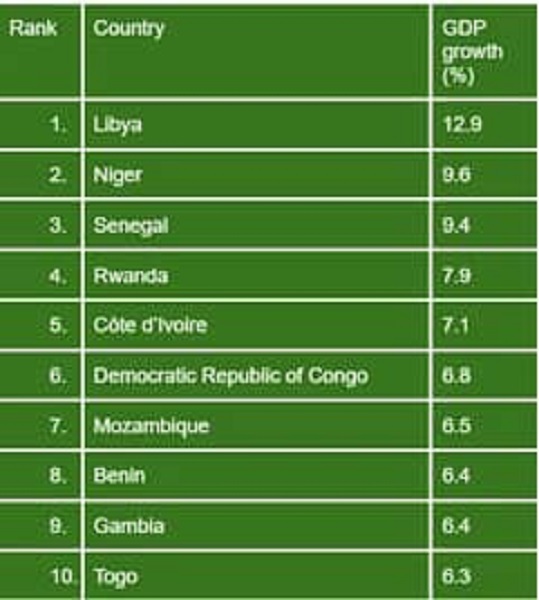The continent is rich in human capital and natural resources, resulting in a market that has become attractive to foreign investors from every part of the globe.
As a result, the levels of inflation on the continent barring complex domestic and foreign economic hurdles have been moderate at worse in recent years.
Unfortunately, there was no shortage of these financial complications last year, and as a result, many African countries experienced a surge in their inflation rates.
According to a report by the African Continental Free Trade Area, the average consumer price inflation across the continent is estimated to have increased by 0.9% to 13.8% in 2022 from 12.9% in 2021, reaching levels unseen in over a decade.
Inflation rates reached double digits in 19 African countries, with the highest rates in East Africa at 25.3%, West Africa at 16.8%, and Southern Africa at 13.2%.
In contrast, inflation rates remained in single digits in Northern and Central Africa at 8.1% and 7.3% respectively.
To remedy this problem, AfCFTA suggested that bold policy actions must be implemented via a mix of monetary, fiscal, and structural policies.
Also, the organization disclosed that African countries must boost their regional trade to enhance resilience to spillovers from the global economic slowdown and reduce persistent trade deficits.
These suggestions are sure to put Africa’s inflation rate on a downward slope and boost economic activities within the borders of the mother continent.
Using a calculation done by analyzing the data sets from the African Development Bank statistics; the International Monetary Fund’s World Economic Outlook, October 2022; and United Nations Population Division estimates, AfCFTA was able to estimate the projected inflation rates for every African country in the year 2023.
The inaugural report is filled with data subject to change should an unforeseen economic event like the pandemic rear its ugly head.
Aside from that, this intended bi-annual report would most likely be updated during the year’s midpoint. But as of this moment, the organization has computed its inflation digits, and below are 10 African countries with the lowest forecasted inflation figures.
Note: Data for the 2022 inflation rates is courtesy of the current data available on TradingEconomics, a data platform that provides its users with accurate information for 196 countries including historical data and forecasts for more than 20 million economic indicators, exchange rates, stock market indexes, government bond yields, and commodity prices.
Inflation rates on TradingEconomics for Mali, Chad, and Morocco were last updated in November, while Gabon and Cameroon were last updated in October, and September, respectively.
Source: Graphic Online

